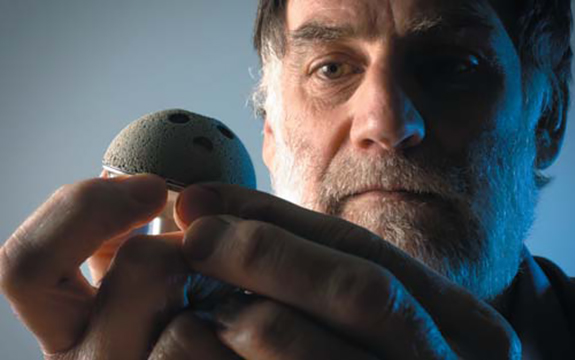New $8.39 million Training Centre in Surface Engineering for Advanced Materials

In Summary
- New ARC Training Centre in Surface Engineering for Advanced Materials (SEAM) will deliver commercial benefits for industry
- SEAM will cover applications including biomaterials, graphene layering, high temperature coatings, laser metal deposition for materials repair and Industry 4.0 manufacturing processes
The new Australian Research Council (ARC) Training Centre in Surface Engineering for Advanced Materials (SEAM), led by Swinburne Distinguished Professor Chris Berndt, will be one of the largest training centres of its kind in Australia, delivering commercial benefits for industry.
The centre has been awarded ARC funding of $4,889,410 over five years to be matched by partner contributions to a total value of more than $8.39 million, announced by Minister for Education and Training Simon Birmingham on 3 August.
A core need for manufacturing
Surface engineering for advanced materials is a core need in all manufacturing sectors and controls the efficiency, productivity and sustainability of Australian industry.
Bringing together research leaders across all career stages, the centre aspires to provide pathways for job creation and a high quality workforce in manufacturing.
SEAM will integrate industry-university cooperation for applied training within an industrial setting.
“This is the first training centre of its kind,” says Professor Berndt.
“It will cover a spectrum of important research themes and applications including biomaterials, graphene layering, high temperature coatings, laser metal deposition for materials repair and Industry 4.0 manufacturing processes; ranging from thin films to thick coatings and additive layered materials.”
Industry partnerships
Swinburne will lead the centre, in partnership with the University of South Australia and RMIT University. Thirteen core industry partners together with another 13 industry organisations, professional bodies and research organisations will support SEAM through intellectual input, knowledge sharing and staff/student exchanges.
“This fantastic achievement builds on our ARC Training Centre in Biodevices, launched in 2015, and the ARC Centre of Excellence for Gravitational Wave Discovery, launched in 2017,” says Deputy Vice-Chancellor (Research and Development) Professor Aleksandar Subic.

